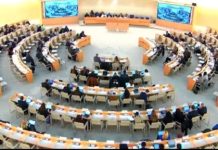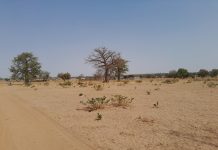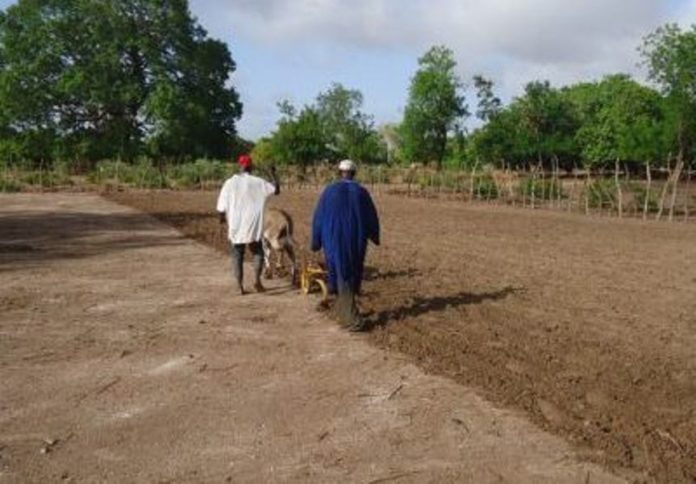This column is devoted to monitor and report on issues that relate to production, processing, preservation and marketing of agricultural produce aimed at ensuring food security in the Gambia as well as the interventions of Government and Non-governmental Organizations in this regard.
Agriculture remains both a new and old source of national revenue and (youth) employment.
Improved public awareness and discussion of the issues involved, will significantly maximize agricultural outcomes and the contribution of the sector to economic growth and job creation.
This is precisely the reason why Farmers’ Eye is critically looking at every Agricultural programme or policy, to gauge whether our Agriculture and Natural resources are properly harnessed to ensure food self-sufficiency.
From the edition we stopped, we have been dealing with Agricultural Programmes and Projects. In this edition, we shall highlight the constraints in the Agricultural sector.
Crop Production in the Gambia is limited due to the over-reliance on rain fed agriculture in with increasing uncertain predictability and restricted in scope during the dry season, to horticulture production, primarily because of inadequate water control measures and irrigation structures that will assure continuous production.
Besides, available resources are not easily accessible to the large majority of small scale producers with low capacity for investment.
This coupled with the inadequate access to other essential inputs such as credit, has constrained planning for agri-businesses and discouraged investment in the sector.
The ANR Policy 2009 to 2015 revealed that the Extension services are presently monovalent, with an extension / farmer ratio of 1: to over 3,500, and not cost effective in delivery performances and that they are not equipped with essential working tools such as mobility or well-planned extension messages, skills and knowledge to transfer appropriate technologies or provide much needed advice and information to producers in the investment and management of their enterprises.
With regard to Soils, the ANR Policy revealed that Soil in the Gambia are generally poor in organic matter and chemical fertility, requiring high inputs of manure and fertiliser to increase yields and quality.
The large majority of producers who are small holders do not have appropriate access to the required inputs such as fertilizers in quantities to improve on the quality of the resource situation.
The ANR Policy show that degradation of river banks and coastal mangrove areas is increasing at a faster rate, reducing land available for farming and that relatively, high incidence of pests (weeds, insects) and diseases in horticultural crops, staple food crops and livestock, significantly reduce production and quality of the commodities, and minimise profit of the enterprises.
Continuing with the constraints of the Agricultural sector, the ANR Policy asserted that Producers, particularly small holders experience difficulty in availability of, and access to essential production inputs such as resistant high yielding germ plasm, (seeds and livestock breeds) pesticides, farm power, affordable irrigation and water control technologies that could guarantee cost effective productivity and competitiveness of the locally produced commodities.
The Policy stated that the value chains of the Livestock sub sector, particularly those of poultry and cattle are far from efficient and that Commercial poultry production enterprises are very few, handling about 0.5 million birds, and producing products that are not competitive in price with cheap competitive products, whose imports are increasing into the country.
The constraints, the policy went on to show are mainly structural with very high production costs resulting primarily from low outputs technologies being applied, and inefficiency of the inputs supplies systems. For example, almost all poultry and piggery feeds are imported, there is an absence of reliable sources of locally producing raw materials for composing nutritious and quality feeds especially using groundnut cake and fish meal in the country; veterinary drugs are not easily affordable, and there is a distinctively low investment in new enterprises.
What is the situation now? The Ministry of Agriculture will be approach for Answers!



















